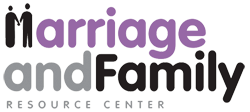What insurances do you accept?
We are In Network (IN) with most (but not all) insurance programs: Aetna, AmeriHealth, Cigna, Highmark Blue Shield, Independence Blue Cross, Medicare, and United Health Care (UHC)/ United Behavioral Health (UBH). We are now also IN Network (OON) with Magellan (which services Behavioral Health Benefits on many Keystone, Personal Choice and several other Insurance Plans). Some of the plans we are OON with do have OON benefits. Check with your insurance company or with the HR representative at work for more detailed information for OON benefits.
What specialties are offered?
Our providers offer specialties in: Addiction/Substance Abuse, Child and Adolescent Care, eating disorders, depression/anxiety, obsessive compulsive disorders, Marriage Counseling, Family Issues, psychological testing, school-related problems (ADD/ADHD), trauma/PTSD, Forensics (legal matters) like divorce, custody, auto accidents, workers’ compensation matters and social security disability.
Do your providers prescribe medicine?
No. All of the providers at MFRC are currently psychologists and do not prescribe medications. For medications you will need a psychiatrist. You can receive a referral from your primary care physician (PCP) or we can help you find one that suits your needs.
What is the cost of the therapy?
If you have insurance coverage that we are in network with, generally all you will pay is your copay. This will usually be printed on your insurance card next to ‘specialist’. If you have insurance coverage that we are out of network with, generally there is a deductible and a coinsurance (a percentage rather than a flat fee) after the deductible has been met. A typical deductible is $500 or $1000. Coinsurance amounts range from 50% to 80% of the allowed fee. The allowed fee is set by your insurance company. For those with no insurance, the out of pocket cost will be $200-$250/session. We reduce this fee for those that provide documentation of unemployment, disability, or financial hardship, commensurate with the degree of hardship. Indigent clients are referred to Community Mental Health (e.g. Penndel Mental Health Center).


